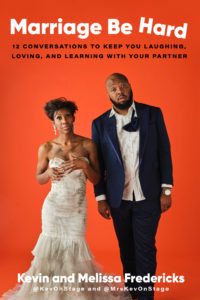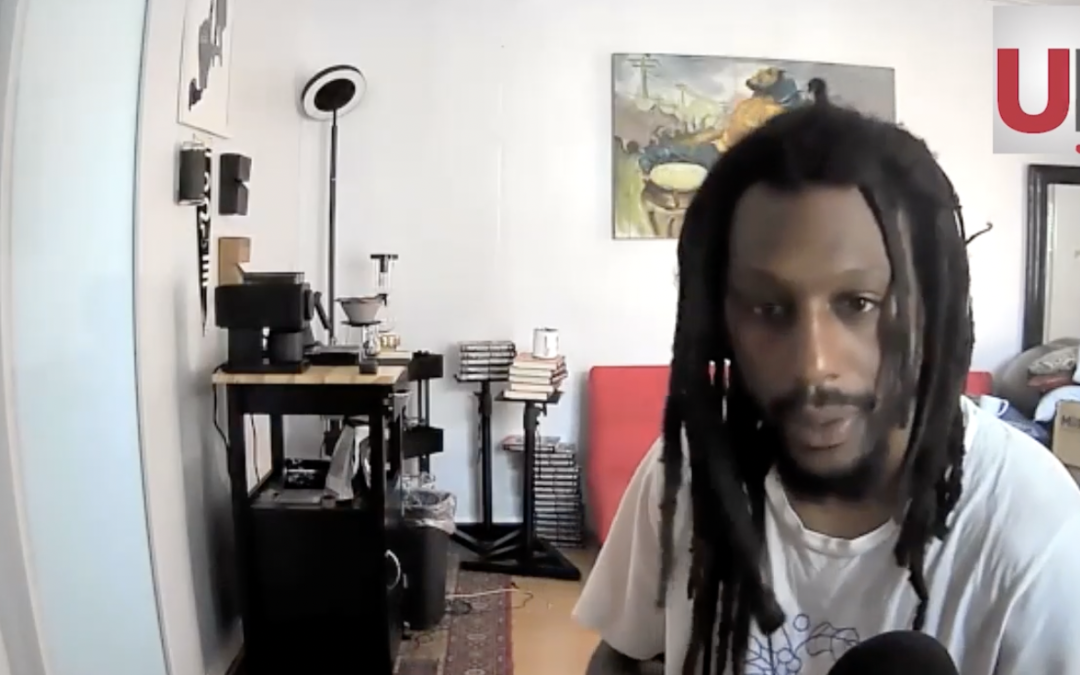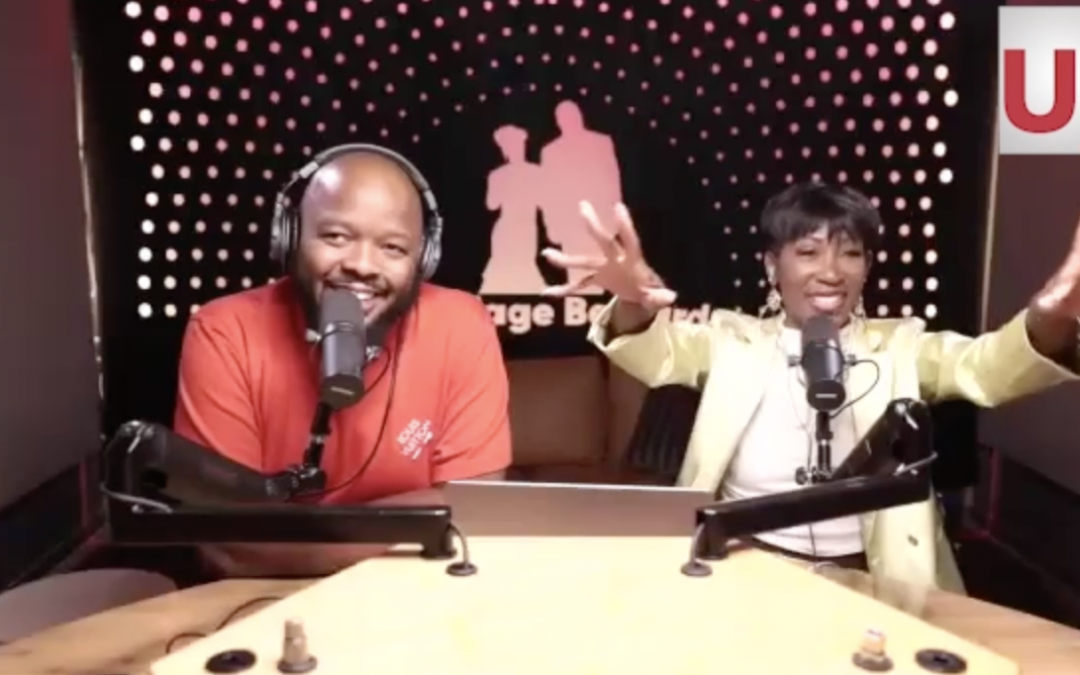
by Maina Mwaura & Allen Reynolds, UrbanFaith | Sep 18, 2023 | Commentary, Entertainment, Headline News, Magazine, Relationships |
Marriage is one of the most important institutions in the lives of believers. Unfortunately it is rarely spoken about beyond the headlines of culture wars in the news or as the excuse some believers hide real conversations about sex behind. A lot of believers have a hard time keeping it real about how hard it is to be married. Kevin and Melissa Fredericks, aka KevOnStage and MrsKevOnStage, rarely hold back on keeping it real in conversations.
With over a million followers on social media (which don’t happen for church folks), they are some of the most busy and influential believers on the internet. Their authenticity and creativity have helped them connect with the “churchy” and unchurched alike. But like all married folks they have had challenges in life and in marriage. Their new book Marriage Be Hard is a candid look at their marriage and the lessons they have learned along the way through reflection, therapy, The Love Hour podcast and real work. They hope to help couples everywhere to get past “just making it” in marriage to thriving through their insights.
UrbanFaith sat down with Kevin and Melissa to talk about their journey and their book. The full interview is above, more information on the book is below.
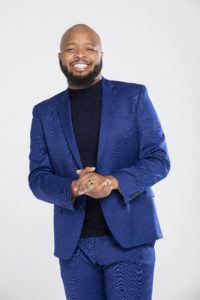
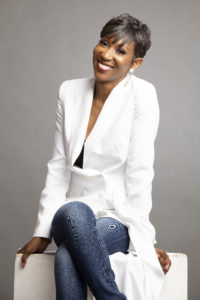
Discover the keys to upholding your vows while staying sane in this hilariously candid guide to relationships, from the husband-and-wife team of comedian Kevin Fredericks and influencer Melissa Fredericks
Growing up, Kevin and Melissa Fredericks were taught endless rules around dating, sex, and marriage, but not a lot about what actually makes a relationship work. When they first got married, they felt alone—like every other couple had perfect chemistry while the two of them struggled. There were conversations that they didn’t know they needed to have, fears that affected how they related to each other, and seasons of change that put their marriage to the test.
Part of their story reads like a Christian fairytale: high school sweethearts, married in college, never sowed any wild oats, with two sons and a thriving marriage. But there’s another side of their story: the night Melissa kicked Kevin out of her car after years of communication problems, the time early in their marriage when Kevin bordered on an emotional affair, the way they’ve used social media and podcasts to conduct a no-holds-barred conversation about forbidden topics like jealousy, divorce, and how to be Christian and sex positive. (Because, as Kevin writes, “Your hormones don’t care about your religious beliefs. Your hormones want you to subscribe to OnlyFans.”)
In Marriage Be Hard, the authors provide a hilarious and fresh master class on what it takes to build and maintain a lasting relationship. Drawing on interviews with experts and nearly two decades of marriage, they argue that• Compatibility is overrated.
• Communication is about way more than simply talking.
• Seeing divorce as an option can actually help your marriage.
• There’s such a thing as healthy jealousy.Real marriage is not automatic. It ain’t no Tesla on the open road. Sometimes it’s a stick shift on a hill in the rain with no windshield wipers. But if you get comfortable visiting—and revisiting—the topics that matter, it can transform your bond with your partner and the life you’re building together.Written for those tired of unrealistic relationship books—and for anyone wondering if they’re the only ones breaking all the rules—Marriage Be Hard is a breath of fresh air and the manual you wish existed after you said “I do.”
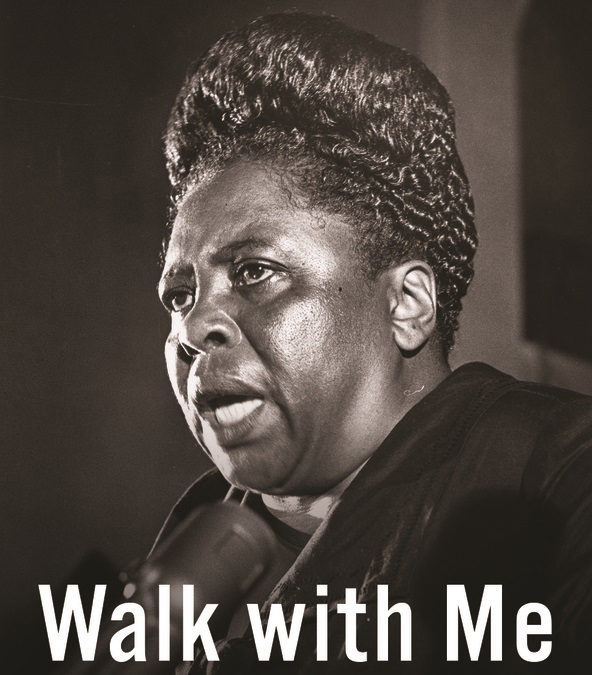
by Adelle M. Banks, RNS | Oct 6, 2021 | Black History, Headline News |
(RNS) — Fannie Lou Hamer was an advocate for African Americans, women and poor people — and for many who were all three.
She lost her sharecropping job and her home when she registered to vote. She suffered physical and sexual assaults when she was taken to jail for her activism. And stories of her struggles reached the floor of the 1964 Democratic Convention — and the nation — when her emotional speech aired on television.
Historian Kate Clifford Larson has written a new book, “Walk With Me: A Biography of Fannie Lou Hamer,” that reveals details of the faith and life of Hamer, who was born 104 years ago Wednesday (Oct. 6) and died in 1977.
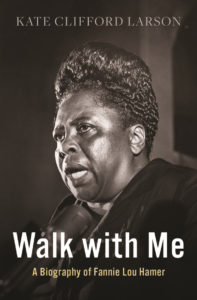
“Walk with Me: A Biography of Fannie Lou Hamer” by Kate Clifford Larson. Courtesy image
Inspired by young Student Nonviolent Coordinating Committee workers who preached Bible passages about liberation at her church in Ruleville, Mississippi, in 1962, Hamer became a singer and speaker for equal rights and human rights.
“She crawled her way through extraordinarily difficult circumstances to bring her voice to the nation to be heard,” Larson told Religion News Service. “And she knew that she was representing so many people that were not heard.”
Larson spoke to RNS about Hamer’s faith, her favorite spirituals and how music helped the activist and advocate survive.
The interview has been edited for length and clarity.
Why did you decide to write a biography of Fannie Lou Hamer and how would you describe her as a woman of faith?
I published a book about (Harriet) Tubman and Hamer is so similar to Harriet Tubman, only 100 years later. I decided to start looking into her life and thinking I should do a biography of Hamer. I just became hooked. There were so many similarities, and things I could see in Hamer that I just thought, we need to have a refresher about Fannie Lou Hamer and the strength of her character and how she survived such incredible adversity and found the same kind of solace that Harriet Tubman did — in her faith, in her family and the community — to keep going and fighting and to try to make the world a better place.
It seems she is relatively unknown in many circles despite the credit she’s given by civil rights veterans for her work.
It is curious that she is not well known broadly. And I hope that changes, because I think we need to look back sometimes to see how far we’ve come. And with Hamer, the things that happened to her — she faced the world by confronting that trauma, and that violence, without hate. And the only way she could do that was through her faith, and talking to God and saying: Where are you, what is happening here, give me the strength to carry this weight and to move forward. And she did. She knew hate could really destroy her — that feeling of hating the people that were trying to kill her and subjugate her. She managed to rise above it because she had a greater mission in front of her.
Why did you title the book “Walk With Me”?
The title is from the song “Walk With Me, Lord.” She was brutally beaten, nearly killed, in the Winona, Mississippi, jail in June of 1963. As she lay in her jail cell, bleeding and bruised and coming in and out of consciousness, she struggled to hang on and her cellmate, Euvester Simpson, a teenage civil rights worker, was there with her. She asked Euvester to please sing with her because she needed to find strength and she needed God to be with her. So she sang that song “Walk With Me, Lord.” She needed to feel there was something bigger that would help her survive those moments where it wasn’t so clear she would survive. And I found it so powerful that she would do that. She survived that night and was able to get up and walk the next morning.
What other spirituals and gospel songs were particularly important to Hamer as she fought for voting rights and other social justice causes?
One of her favorites is “This Little Light of Mine.” She sang that everywhere, all the time. It’s kind of her anthem. There were some other spirituals, but really, most of the ones she sang a lot during the movement were those crossover folk songs, rooted in Christian spirituals, like “Go Tell It on the Mountain.” She grew up not only in a very strong church environment, the Baptist church, but she grew up in the fields of Mississippi where there were work songs in the fields, call and response songs. Where she grew up was actually the birthplace of the Delta blues music.
She also quoted the Bible to the people she differed with. Were there particular biblical lessons Hamer applied to her fight to help her fellow Black Mississippians?
She used the Bible in many different ways. She used it to shame her white oppressors who claimed also to be Christians, following the path of Christ. She would use the Bible and say: Are you following this path by what you’re doing to me, to my fellow community members and family members? And she used the Bible passages to remind Christian ministers: This is your job, and what are you doing up on that pulpit? You’re telling people to be patient. Well, in the Bible it says stand up and lead people out of Egypt.
You wrote about William Chapel Missionary Baptist Church, Hamer’s congregation, throughout the book. What happened there, over the years as the Student Nonviolent Coordinating Committee and other groups used it as a place for meetings, classes and rallies?
The church, the ministers participated in the movement and had meetings in that church at great risk to themselves and to the church, and in fact, the church was bombed a couple of times even though the fires were put out, fortunately, very quickly. There were residents in the community that took their lives and put them on the line. They were at great risk, to go to those meetings, to conduct those meetings, to go out and do voter registration drives. It was all centered on the church community because that was really the only community buildings in many of these places where people could meet together to have these discussions.
You said Hamer was at a crossroads as she first listened to those SNCC (pronounced “snick”) activists seeking more people to join their cause.
She experienced trauma, and she had been sterilized against her will — she didn’t give permission — and she had gone through this very deep depression, and it tested her faith. It tested her understanding of the world, and she came out of that and went to this meeting in Ruleville in 1962 and when she heard those young people and their passion and their willingness to put their lives on the line for her, she viewed them as the “New Kingdom.” So it was more than a crossroads for her. It was a moment where she could see the future in these young people, and she called them the “New Kingdom (right here) on earth.” If they were willing to stand up and risk their lives then she could, at 45, 46 years old, stand up herself. That was a crossroads. She made that choice to stand up, publicly, and move forward.
by Urban Faith Staff | Jun 18, 2012 | Feature, Headline News |

ROAD TO REDEMPTION: Rodney King, 47, was found dead in his swimming pool on Sunday, June 17. In April, he was a featured author at the LA Times Festival of Books, where he discussed his autobiography, 'The Riot Within.' (Photo: Susan J. Rose/Newscom)
Rodney King’s untimely death over the weekend has led to a lot of conversations about his significance as a key civil rights figure. King, of course, gained fame for the 1991 videotaped beating by Los Angeles cops that he endured and the subsequent race riot that followed in 1992 after the officers were acquitted of any wrongdoing. He then became an unlikely voice of reason when, in the midst of the deadly and destructive rioting, he famously asked, “Can we all just get along?” Sadly, that question still echoes today after each new racially charged issue or controversy that erupts in the media.
But what will be King’s lasting legacy? By his own admission, he was not a perfect man. In fact, drunk driving and alleged substance abuse were the reasons he was pulled over by the L.A. cops initially in 1991, and he continued to struggle with drugs and alcohol apparently until the night of his death. In a Los Angeles Times post, reporter Ken Streeter recalls his series of interviews with King this year and confirms that King was still drinking and still smoking pot (he said for medical reasons).
So, King doesn’t exactly fit the classic image of the heroic civil rights icon. Yet, he stands as an important symbol in our nation’s uneasy saga of racial unrest and our stutter steps toward reconciliation.
Writing at The Root, Sylvester Monroe speaks of King as a “symbol” whose pain and missteps were not in vain. Last year at Poynter.org, Steve Myers observed how citizen journalism has changed since that infamous video of King being beaten by police. An Associated Press report at HuffPost’s Black Voices attempts to summarize King’s significance in shining a light on the injustices of racial profiling and police brutality in urban law enforcement. The article features an interview with Lou Cannon, author of Official Negligence: How Rodney King and the Riots Changed Los Angeles and the LAPD.
“The King beating and trial set in motion overdue reforms in the LAPD and that had a ripple effect on law enforcement throughout the country,” Cannon explains. Indeed, under L.A. police Chief William Bratton in the 2000s, the department began focusing on community policing, hired more minority officers, and worked to heal tensions between the police and minority communities who continued to protest racial profiling and excessive use of force.
In the post-Rodney King world, adds Cannon, “It became more perilous to pull someone over for driving while black.”
To his credit, King was well aware of his shortcomings and shared his story in an autobiography released earlier this year to mark the 20th anniversary of the L.A. riots. In The Riot Within: My Journey from Rebellion to Redemption, King came clean about his failures and his continued struggles with alcohol addiction, but also about how God had helped him begin to turn his life around.
In a poignant interview with the Canadian public radio program Q with Jian Ghomeshi, King talked about his book and expressed optimism about both his own future and the state of race relations in the United States.
What do you view as Rodney King’s legacy? What does his complicated journey say about race relations in America? Will he rightly be remembered a civil rights icon?



